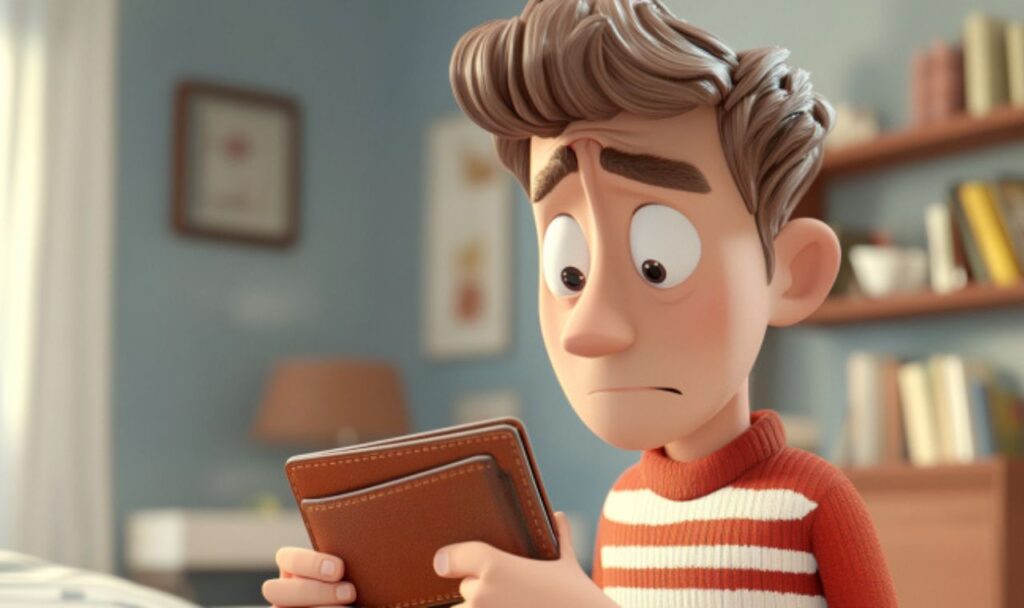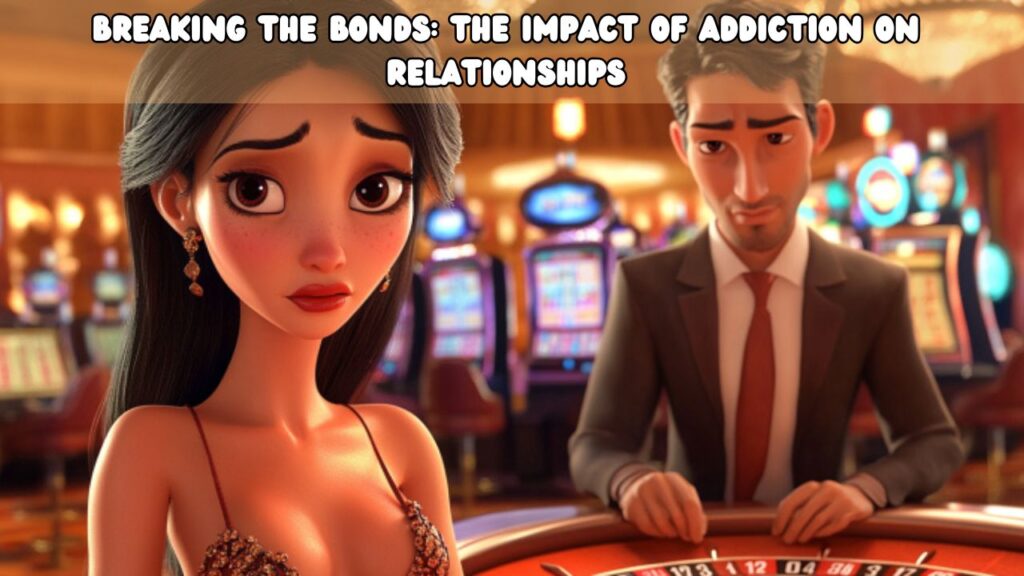Relationships are like a dance 💃🕺—sometimes smooth, sometimes a little clumsy, but always about finding balance and working together. But when addiction steps into the spotlight, it’s like one partner is suddenly carrying a crushing weight 🪨, throwing the rhythm completely offbeat. Addiction doesn’t just stay with one person—it’s a storm 🌩️ that spills over, sending ripples (or let’s be real, tidal waves 🌊) through everyone close to them.
From romantic relationships 💞 to family ties 👨👩👧👦 and friendships 🤝, the impact of addiction on relationships is anything but small. It’s not just about one broken promise 🤥 or one sleepless night 😴. It’s about how trust, communication, and emotional intimacy start to crumble like a sandcastle in high tide 🏰🌊. Suddenly, late-night heart-to-hearts turn into arguments 🔥, shared dreams drift further out of reach 🌠, and love begins to feel unrecognizable 💔.
Why does addiction hit relationships so hard? 🤔 Because strong relationships are built on connection 🤗 and stability 🏡—two things that addiction loves to disrupt. Addiction feeds on secrecy 🤐, deception 🙈, and dependency, creating a chaotic third wheel in the relationship 🚨. It demands time ⏳, money 💸, and attention, leaving little room for anything—or anyone—else.
In this article, we’re diving deep 🕵️♀️ into how addiction impacts relationships in every way possible. From emotional rollercoasters 🎢 to financial strain 💳, from family struggles 🫂 to the road to recovery 🌈, we’ll unpack it all. So grab a cup of coffee ☕, your favorite cozy blanket 🛋️, or even a glass of wine 🍷 (no judgment here 😉), and let’s explore how love can survive—and even thrive—after addiction.
Addiction and Emotional Turmoil: A Rollercoaster of Feelings 🎢💔

Addiction doesn’t just affect the body or mind—it takes a heavy toll on the heart 💔 and the emotions of everyone involved. For couples and loved ones, it’s like being strapped into a never-ending rollercoaster 🎢 of highs, lows, and sudden twists that no one signed up for. The emotional strain addiction places on relationships often leaves people feeling isolated, hurt, and drained. Let’s dive into how addiction wreaks havoc on the emotional foundation of relationships—and what that can mean for everyone involved.
Trust Erosion: The Foundation Crumbles 🏚️
Trust is the bedrock of any strong relationship 💕, but addiction loves to chip away at it piece by piece. Whether it’s broken promises, hidden behaviors, or outright lies 😔, addiction forces trust to take a backseat. Partners may start to feel like they’re constantly second-guessing everything, wondering, Are they telling me the truth? Or just what they want me to hear? 🤔
This erosion of trust can lead to constant suspicion 🕵️♀️ and even paranoia, making it harder to feel secure or connected. Without trust, every conversation feels like walking on eggshells 🥚, and every decision becomes a potential battle. Rebuilding trust after addiction isn’t impossible, but it’s a long and fragile process 🕊️—one that requires time, patience, and effort from both parties.
Emotional Burnout: When Love Feels Like a Job 💼❤️
When someone you love is battling addiction, it’s easy to slip into the role of caretaker 🩺. While helping might feel like the right thing to do, it often leads to emotional burnout 😩. Suddenly, you’re not just a partner—you’re a nurse, a counselor, and sometimes even a detective 🕵️♂️.
This constant caretaking can drain you of energy, leaving little room for your own needs 🫠. You might find yourself feeling resentful 😡, disconnected, or even guilty for wanting space. It’s a vicious cycle where love feels more like a full-time job than a partnership, and both people end up suffering in the process.
Isolation: Love in a Bubble 🌪️
Addiction has a sneaky way of isolating people from the world around them 🌍. For couples, this often means retreating into a bubble where it’s just the two of you—and the addiction. Social events become fewer 📉, phone calls from friends go unanswered 📵, and family gatherings feel impossible.
Why? Because addiction carries a heavy load of stigma and shame 😔. People fear judgment from others or feel too overwhelmed to maintain their usual relationships. This isolation only deepens the strain on the couple, cutting them off from the support networks they need most 🫂. Breaking free from this bubble requires courage and often the help of outside perspectives to pull you back into the world 🌈.
Addiction’s emotional toll is undeniably heavy 🪨, but recognizing these challenges is the first step toward healing. Whether it’s rebuilding trust, stepping back from burnout, or reconnecting with loved ones, emotional recovery is possible 🌟. With patience, support, and understanding, love can find its way through the storm 💕.
Financial Fallout: When Addiction Hits the Wallet 💸📉

Love might make the world go round 🌎, but let’s be real—money pays the bills 🏠. Addiction, however, has a knack for messing with finances in ways that can leave couples struggling to stay afloat. From unplanned expenses to lost income, the financial toll of addiction can pile up faster than you realize 🏦⏳.
For relationships, money issues are already one of the top sources of conflict ⚡. Add addiction to the mix, and you’re looking at a perfect storm 🌩️ of financial strain, arguments, and broken trust. Let’s explore how addiction impacts the wallet—and how it changes the dynamic between partners trying to navigate these choppy financial waters 💔💰.
The Hidden Costs of Addiction 💊➡️💸
Addiction is expensive—both in obvious and subtle ways. The direct costs, like buying substances 💉🍾 or paying for gambling 🎰, can quickly drain a bank account. Then there are the hidden costs, like medical bills 🏥, legal fees ⚖️, or the price of rehab programs 💊🛌. And let’s not forget the impact of lost income when someone’s addiction interferes with their ability to hold a job 📉.
For couples, these mounting expenses can feel like a financial black hole 🌌, sucking away the resources needed for rent, groceries, or saving for the future 🏡💍. Financial strain often leads to tension, as one partner may feel like they’re carrying the burden alone, while the other spirals further into addiction. Over time, the weight of these hidden costs can make it harder to find common ground 💔.
Budget Battles: Arguments Over Spending 💥💸
When addiction takes the wheel, financial priorities often get tossed out the window 🚗💨. Couples may find themselves clashing over where the money is going, especially when addiction-related expenses are involved.
Arguments about missing money 💵, late bills 🕒, or maxed-out credit cards 💳 can become a daily occurrence. Add to that the stress of debts piling up 📜 or even the risk of losing your home 🏠 due to foreclosure, and it’s easy to see why couples find themselves at odds.
These “budget battles” don’t just drain bank accounts—they also chip away at emotional intimacy 🪫❤️. Instead of planning for vacations or saving for a family, couples are stuck arguing over unpaid utilities or suspicious purchases. It’s exhausting, and it’s one of the biggest ways addiction drives a wedge between partners.
Financial Infidelity: A Hidden Crisis 💳❌
When addiction enters the picture, secrecy often follows close behind 🕵️♂️. Financial infidelity—the act of hiding money matters from your partner—becomes all too common.
For example, one partner might open a secret credit card 🛒 or empty out a savings account to fund their addiction, leaving the other in the dark. Others might lie about their spending habits or hide receipts, creating an atmosphere of mistrust and betrayal 🤥💔.
Financial infidelity doesn’t just hurt your wallet—it’s a gut-punch to your relationship 💢. The secrecy it breeds can make it nearly impossible to rebuild trust, especially when the truth eventually comes to light 🌅.
The financial fallout of addiction is a storm that few relationships are prepared for 🌪️. But recognizing these challenges is the first step toward taking control 🌈. By opening up about money, seeking professional help 💡, and setting boundaries, couples can start to rebuild not just their finances, but their trust and connection 💕.
The Ripple Effect: Family and Friends in the Crossfire 🌊💔

Addiction doesn’t stay confined to one person—it spreads like ripples in a pond 🌍, touching everyone nearby. Family, friends, and loved ones often find themselves in the storm’s path 🌩️, unsure how to help or protect themselves. For children, the disruption can shape their emotional world 🌈. Friends might start to distance themselves, and partners can get caught in the messy web of enabling or codependency. Let’s explore how addiction affects these relationships and why understanding these ripple effects is so important ❤️🩹.
Children: The Silent Sufferers 🎠💔
When addiction enters a family, children are often the quiet victims 🫥, feeling the impact without having the words to express it. The stability they need to grow and feel safe is replaced by chaos 🌪️. Consistent routines? Gone. Emotional security? Out the window 🪟. Parents struggling with addiction may become unpredictable, distant, or emotionally unavailable, leaving kids feeling confused 🤔, hurt 💔, or even blaming themselves 😞.
Some children take on adult responsibilities way too early ⏳, acting as caregivers for siblings or even trying to “fix” their parents’ struggles 🛠️. While their intentions are pure, it forces them to grow up too fast and can lead to long-term feelings of resentment 😤, guilt 🥺, or anxiety 🫣.
As they grow, these children may struggle to form healthy relationships, often carrying the scars of co-dependency into adulthood 🧳. They might feel responsible for others’ happiness or have difficulty trusting people fully 🛟. Breaking this cycle requires creating a safe, stable environment where children can reclaim their sense of security and innocence 🌟.
Friends Fading Away: A Shrinking Social Circle 🧍♀️➡️🧍♂️
Addiction doesn’t just strain family relationships—it takes a toll on friendships too 🥺. Friends may start pulling away, feeling awkward or helpless when faced with the realities of addiction 🙅♀️. Others might get frustrated 😠 after witnessing repeated cycles of relapse, broken promises, or erratic behavior.
For the partner of someone battling addiction, the isolation can feel especially lonely 🧍♀️💭. Between the emotional exhaustion of supporting their loved one and the embarrassment or stigma they might feel, they often lose touch with their own support network 🤳⛔. Social events become rare 🎉, phone calls go unanswered 📵, and the once-strong friendships fade into the background 🌫️.
This shrinking social circle isn’t just sad—it’s dangerous 🚨. Without friends to lean on or provide outside perspective, couples are left to navigate the challenges of addiction alone, often amplifying feelings of shame and helplessness 🫠. Rebuilding these connections takes courage and honesty but can make all the difference in recovery 🌈.
Enabling and Codependency: When Love Hurts 🛟🖤
In relationships touched by addiction, love can sometimes turn into something harmful, even when it’s well-meaning 😔. Enabling happens when a partner’s actions unintentionally make it easier for the addiction to continue 🚪. This might include covering up bad behavior 🤫, making excuses 📝, or cleaning up financial messes 💳. While these actions come from a place of love 💕, they can remove accountability and keep the addiction alive.
Codependency adds another layer to the challenge. It’s a dynamic where one partner becomes so focused on “saving” the other that they lose sight of their own needs 🫠. In addiction, this might look like sacrificing personal goals 🏆, ignoring mental health 🚨, or even cutting off other relationships to help their partner.
Breaking free from enabling and codependency isn’t easy—it takes self-awareness 🪞, boundaries 🚧, and often outside support 🩺. Healthy love means being there for your partner without losing yourself in the process 💪❤️. Recognizing this fine line between support and harm is key to creating a path toward recovery and healthier relationships 🌟.
The Path to Healing: Steps Toward Recovery 🌈💖

Addiction can feel like a never-ending storm 🌪️, but recovery offers the promise of calm skies and fresh starts 🌤️. While the journey to healing isn’t easy, it’s one that can rebuild trust, connection, and hope. For couples and families impacted by addiction, this process requires open hearts ❤️, professional guidance 🩺, and the ability to set boundaries that protect both love and individual well-being 🌟. Let’s look at the key steps on this path to healing and how they can help transform relationships.
Open Communication: Breaking Down Walls 🧱❌
Communication is the cornerstone of any healthy relationship 🗣️💞, but addiction has a way of erecting walls between loved ones. Secrecy 🤐, shame 😔, and frustration 🤯 can make it hard to have honest conversations. However, opening up and communicating is vital for healing.
The key to successful communication is empathy 💕—not blame. Instead of pointing fingers 👈, try using “I” statements, like “I feel hurt when…” or “I need us to work together on this.” These approaches create a space for openness without triggering defensiveness 🙌.
Timing matters too 🕒. Choose a moment when emotions aren’t running high and both of you can talk calmly. Keep the focus on understanding rather than “winning” the conversation 🏆. It’s okay to take breaks if things get heated 🔥—progress takes patience.
Professional Help: Calling in the Experts 🩺✨
Healing from addiction is often too big a task to tackle alone 🏋️♀️. Professional help, like therapy or counseling, can provide the tools and guidance needed to navigate this challenging journey 💡.
Therapists or counselors help couples learn how to communicate effectively, rebuild trust 🛠️, and manage the lingering emotional wounds of addiction 💔. Support groups like Al-Anon or Nar-Anon offer a community of people who truly understand what you’re going through 🤝, giving you the chance to share your experiences and gain strength from others.
For individuals struggling with addiction, rehab programs 🏥 designed for couples or families can be life-changing. These programs not only address the addiction itself but also the relationship dynamics that have been impacted. Having a professional team to guide you creates a safe and structured environment to focus on recovery 🌟.
Setting Boundaries: Love Without Losing Yourself 🚧❤️
While love is powerful, it can’t solve everything on its own 💔. For relationships affected by addiction, setting healthy boundaries is essential to avoid burnout and maintain self-respect 🙌. Boundaries aren’t about punishment—they’re about protecting your well-being while showing your partner what behavior is acceptable 🛡️.
Start by clearly identifying what you need to feel safe and respected 📝. For example, you might set boundaries like, “I won’t cover up for you if you miss work,” or, “We’ll only discuss these issues in therapy, not during arguments.” Consistency is crucial—stick to the boundaries you set to show that you value yourself and the relationship 💪.
Boundaries also help shift the focus back onto personal accountability 🤝. They encourage the person struggling with addiction to take responsibility for their actions while giving their partner space to prioritize their own needs 🧘♀️. Over time, these boundaries can create a healthier dynamic built on mutual respect and understanding 🫶.
Recovery is a journey of rebuilding, step by step 🛤️. With open communication, professional support, and healthy boundaries, it’s possible to move from a place of pain to one of hope and love 🌈. The path isn’t easy, but it’s absolutely worth it 💖.
Thriving Post-Addiction: Rebuilding Relationships from the Ashes 🌟💑

Recovery is not just about breaking free from addiction—it’s about rebuilding what was lost and creating something even stronger from the ashes 🌋❤️. For couples, this means rekindling trust, intimacy, and connection, while remaining vigilant against relapse. Thriving post-addiction requires patience 🕒, forgiveness 💕, and a commitment to growth 🌱. Let’s explore how relationships can not only survive addiction but emerge even better than before.
Forgiveness: Letting Go to Grow 🌷💛
Forgiveness is one of the most powerful tools in the healing process 🛠️. Addiction often leaves behind a trail of pain, including broken promises 🤥, betrayal 💔, and emotional wounds that take time to heal. Forgiveness doesn’t mean forgetting what happened—it means letting go of the resentment that keeps you stuck in the past ⏳.
True forgiveness allows both partners to move forward 🏞️. It’s about choosing to focus on growth instead of replaying past mistakes like a broken record 🔁. Start by acknowledging your feelings—whether it’s anger, sadness, or disappointment—and then work through them with empathy 🤝.
It’s important to remember that forgiveness is a process 🧘♀️. It may take time, and that’s okay. Forgiving doesn’t erase the past, but it lightens the emotional load 🪶, giving both partners the freedom to rebuild with love and trust 💖.
Rediscovering Intimacy: Rekindling the Flame 🔥💞
Addiction can create a deep divide between partners, making intimacy feel distant or even nonexistent 💔. Reconnecting emotionally and physically is a crucial part of rebuilding your relationship 🪄.
Start small. Share meaningful conversations 💬, reminisce about happy memories 📸, or even try something new together, like a cooking class 🍳 or hiking trip 🥾. These shared activities create moments of joy and connection, helping to rebuild trust and closeness.
Physical intimacy may take time to rekindle 🌙. Be patient with yourselves and communicate openly about your needs and boundaries 💕. Small gestures like holding hands 🤝, cuddling 🛋️, or even just spending time together without distractions 📱 can help reignite the spark.
Remember, intimacy isn’t just about romance—it’s about creating a space where both partners feel seen, valued, and loved 🫶.
Staying Vigilant: Guarding Against Relapse 🚨🔄
While recovery is a huge victory 🏆, it’s also a lifelong journey 🛤️. Staying vigilant against relapse is key to maintaining the progress you’ve made as a couple 💪.
Ongoing support is essential. This could mean continuing therapy 🛋️, attending support groups like AA or NA 🔗, or having regular check-ins with each other about how you’re feeling and what you need 🤝. Building a strong support network of family and friends 🫂 can also help provide accountability and encouragement.
Be mindful of warning signs 🚩, such as changes in behavior, increased stress levels 😣, or withdrawal from activities and loved ones 🏠. Addressing these signs early can prevent a full relapse and keep recovery on track 🚀.
Create relapse prevention plans as a team 🌟. This might include identifying triggers, practicing stress-relief techniques 🧘♂️, or even having an “emergency plan” if one partner feels tempted to fall back into old habits 🧩.
Thriving post-addiction is about embracing the future while remaining anchored in accountability 🛡️. With forgiveness, intimacy, and vigilance, couples can transform their relationships into something stronger, healthier, and more resilient than ever 🌈❤️.
Conclusion: Love, Hope, and the Road Ahead 🌅❤️

Addiction may feel like the end of the road, but it doesn’t have to be. Recovery is not just possible—it’s transformative 🌟. For individuals and couples alike, it offers a chance to rebuild, to grow, and to rediscover the love and connection that addiction once overshadowed 💕. While the journey may be filled with challenges, each step forward is a testament to the strength and resilience that exists within us all 💪🌈.
Healing a relationship impacted by addiction requires time, effort, and a willingness to confront the pain of the past 🕰️. It’s not easy, but it’s worth it. From open communication 🗣️ to professional help 🩺, and from setting boundaries 🚧 to rekindling intimacy 🔥, every effort brings you closer to a healthier, more fulfilling connection.
If you’re facing these challenges, remember: you don’t have to do it alone 🫂. Seeking help is a sign of strength, not weakness 💡. Whether it’s therapy, support groups, or leaning on trusted loved ones, there are countless resources available to guide you on this journey 🛤️.
Love doesn’t disappear in the face of addiction—it’s tested, yes, but it can also grow deeper and stronger through recovery ❤️🩹. It takes patience, compassion, and commitment, but love can thrive beyond addiction, shining brighter than ever before 🌟.
Even when the storm feels overwhelming 🌩️, know that brighter days are ahead 🌞. Relationships can heal. Trust can be rebuilt. Happiness can return. As you navigate the path forward, remember this: Even the heaviest storm can clear for brighter days ahead! 💖🌈
Ivy Unbound is an open-minded, vivacious woman in her late 20s who made a conscious choice to remain single. She's a bonafide expert in solo living and self-discovery. Ivy is a breath of fresh air in a world that often places undue importance on finding "the one." She's living proof that a woman can be fulfilled, content, and even downright ecstatic about life, all while remaining single.
Hailing from a small town in the Midwest, Ivy has always marched to the beat of her own drum. She left her hometown to explore the world, learn new languages, and delve into different cultures. She is a world traveler, a life-long learner, and a woman who believes in the power of self-love and self-acceptance.
Ivy's mantra is "Single, not sorry!" and she embodies this phrase in every aspect of her life. Her mission is to inspire other women to embrace their single status, to explore their desires, and to live life on their own terms. She is the friendly, flirty, and fiercely independent voice that single women need in their lives.
- Ivy Unboundhttps://loveinteract.com/author/ivyunbound/
- Ivy Unboundhttps://loveinteract.com/author/ivyunbound/
- Ivy Unboundhttps://loveinteract.com/author/ivyunbound/
- Ivy Unboundhttps://loveinteract.com/author/ivyunbound/



You may like
Managing Long-Distance Relationships: Tips and Tricks for Success
Navigating Cultural Differences in Relationships: A Yoga-Inspired Guide
Balancing Career and Relationship Goals: A Guide to Harmonious Living